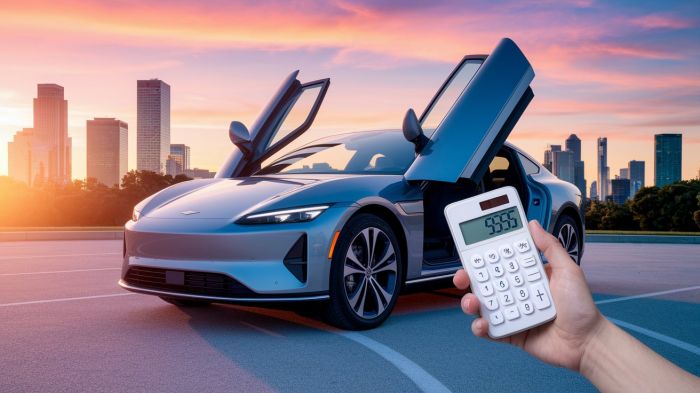Mercedes is one of the luxury German car brands that delivers the highest quality vehicles to its fans all over the world. We know Mercedes as the leader in car design and safety features. But the company is also one of the leaders in engine development.
Now, Mercedes-Benz cooperates with several other companies to create efficient and powerful engines that would combine low emissions and high performance standards. This is one of the main things that lies behind every single engine Mercedes makes nowadays.
.jpg)
Although the company is quickly turning to electric vehicles, we want to remember its gas-powered technologies. So, in this article, I offer you the list of Mercedes engines that I've reviewed in this blog. I will also give you the links for proper reference.
Mercedes 2.0L M260 engine
This is one of the fresh gasoline engines offering 2 liters of displacement. The 4-cylinder engine has been used in numerous models in the lineup. The longitudinal version has the index M264. But it's completely the same engine just with different mounts.
The engine offers the IHI turbocharger for proper power and torque. It has phasers of Camtronic type on both camshafts and the cams are driven by the chain. The engine has hydraulic lifters for automatic valve adjustment.
The M260 powerplant was earlier used for smaller cars but since 2020 it has also been installed in the GLA and GLB SUVs. Although the engine is quite technological and has a lot of complicated units in it, it's reliable and good to own.
Key features and my opinion:
- Production years:2018-now
- Average lifespan of M260:160,000-190,000 miles
- Fuel supply type:direct injection
- Power range:190-306 hp
- Fuel efficiency:good
- Engine block material:aluminum
- Engine reliability score:high
- The most common problems:Camtronic problems, carbon buildup on intake valves, additional emission filter potential issues at high mileage.
Mercedes M254 E20 engine
The M254 series includes E15 and E20 powerplants. The first one has 1.5 liters of displacement while the E20 version offers 2 liters. They are both 4-cylinder blocks, just the displacement is different.
So the M254 E20 is one of the new-gen Mercedes engines with high-tech coating on cylinder walls aimed at making it much more durable than its predecessors. Starter-generator makes all these engines mild-hybrid with a 48V battery pack.
The engine is pretty technological. It has Camtronic phasers on both camshafts for proper valve timing. Also, there is a turbocharger for developing needed power. The cams are driven by a chain. There are lifters, so no need to adjust the valves regularly.
The engine has only been used in the C-Class but I suppose it will be installed in other models, too. It's quite fuel-efficient and produces enough power to fit under the hood of small SUVs. Of course, the overall durability is hard to estimate because there are simply no high-mileage engines to take the information from.
Key features and my opinion:
- Production years:2020-now
- Average lifespan of M254:160,000-190,000 miles
- Fuel supply type:direct injection
- Power range:258 hp
- Fuel efficiency:good
- Engine block material:aluminum
- Engine reliability score:medium
- The most common problems:Camtronic problems, carbon buildup on intake valves, knocking with low-octane fuel.
Mercedes M139 engine
This is yet another 2.0L 4-cylinder engine from the lineup of the German manufacturer. But the M139 model is not that simple. This is a strong and angry engine that is used in AMG models only and produces twice more power than a usual modern 2-liter engine should produce.
With a BorgWarner turbocharger, the engine can produce up to 476 horsepower and this is really a lot. You can predict that both camshafts are equipped with technological phasers. They are driven by the chain. Of course, valves have hydraulic lifters.
Even though the engine is performance-oriented, you can expect it to last quite a long time. Surprisingly, if driven carefully, this engine shows very decent gas mileage. But let's face it, no one will actually drive it carefully.
Key features and my opinion:
- Production years:2019-now
- Average lifespan of M139:160,000-190,000 miles
- Fuel supply type:combined injection (direct+port)
- Power range:365-476 hp
- Fuel efficiency:average
- Engine block material:aluminum
- Engine reliability score:medium
- The most common problems:engine is very demanding to fuel quality, coolant leaks, turbocharger pipes dying, oil pump is driven by a weak belt.
Mercedes M264 engine
The M264 engine model is completely the same as the above-described M260 but for longitudinal use. It can also be 1.5L or 2.0L and it mainly powers the C-Class and also E-Class, CLS and GLS models. There is no need to describe this engine once more - you can have a look at the M264 description.
Mercedes M104 engine
This is the in-line 6-cylinder gasoline engine that is now the history of the Mercedes-Benz. The engine was legendary and powered a whole lot of Mercedes vehicles. After its death on the Mercedes production line, it was used in SsangYong cars for quite a long time.
There were versions with different displacement and power. The engine is pretty simple, there are no serious technologies to tell you about. The phaser was only used on the intake camshaft and the cams were driven by the chain. The engine had hydraulic lifters.
Interestingly, to change the oil in these 6-cylinder machines, you needed 7 liters of expensive Mercedes oil. So, maintaining these machines wasn't that cheap. These legends could last forever with proper maintenance and repair. A lot of them are still alive, even after angry tuning and upgrades.
Key features and my opinion:
- Production years:1989-1998
- Average lifespan of M104:330,000-360,000 miles
- Fuel supply type:port injection
- Power range:193-230 hp
- Fuel efficiency:bad
- Engine block material:cast-iron
- Engine reliability score:high
- The most common problems:various oil leaks, cooling fan problems, engine is afraid of any overheating, wiring and connections problems.
Mercedes M271 engine
The M271 engine by Mercedes was first shown to the public in 2002 and was eventually discontinued in 2015. It lived a long and happy life under the hood of dozens of MB vehicles.
This is the 4-cylinder gasoline engine that had two types of blocks - for 1.6 and 1.8 liters of displacement. The engine was turbocharged but Mercedes didn't even try to make it powerful. The main focus was on longevity.
Also, this is not the most fuel-efficient engine in the world and will drink a lot of fuel. The chain problem is probably one of the most significant issues. Also, the injection type causes carbon buildup on its valves.
Key features and my opinion:
- Production years:2002-2015
- Average lifespan of M271:180,000-210,000 miles
- Fuel supply type:port or direct injection
- Power range:122-204 hp
- Fuel efficiency:bad
- Engine block material:aluminum
- Engine reliability score:medium
- The most common problems:weak timing chain, carbon buildup on valves, various leaks, fuel leaks into the oil pan.
Mercedes M274 engine
Great engine and the sibling of the M270 model, the M274 powerplant. It has two versions of its block forming 1.6 or 2.0 liters of displacement. This is a simple 4-cylinder engine that was first offered in 2011.
The engine is pretty modern, it has phasers on both camshafts. There were two types of turbochargers, both IHI. Also, this is one of the most economical Mercedes non-hybrid engines. The timing system is driven by the chain.
There is a large range of power options, so the engine was installed in a lot of various models in Mercedes lineup.
Key features and my opinion:
- Production years:2011-now
- Average lifespan of M274:180,000-210,000 miles
- Fuel supply type:direct injection
- Power range:129-333 hp
- Fuel efficiency:excellent
- Engine block material:aluminum
- Engine reliability score:medium
- The most common problems:very weak phasers, chain problems, afraid of any kind of overheating, a lot of leaks.
About the authors
The CarAraC research team is composed of seasoned auto mechanics and automotive industry professionals, including individuals with advanced degrees and certifications in their field. Our team members boast prestigious credentials, reflecting their extensive knowledge and skills. These qualifications include: IMI: Institute of the Motor Industry, ASE-Certified Master Automobile Technicians; Coventry University, Graduate of MA in Automotive Journalism; Politecnico di Torino, Italy, MS Automotive Engineering; Ss. Cyril and Methodius University in Skopje, Mechanical University in Skopje; TOC Automotive College; DHA Suffa University, Department of Mechanical Engineering






Add comment